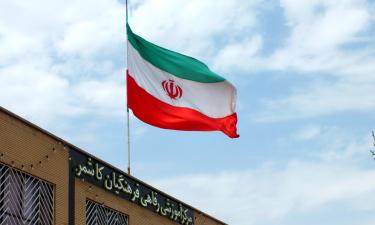OPEC: Global Oil Crisis Inevitable?
Saudi Arabia denied the leadership among oil exporting countries for the third time already
Despite the efforts taken to save appearances, OPEC seems to have lost its control over the world’s oil markets (the control is lost for a while, but still). In the end of the previous year, responsible OPEC representatives told that there was enough hydrocarbon stuff, that prices were within the limits determined by OPEC itself and that all problems were just temporary. However, the situation proved to be different in fact. The continuous strike in Venezuela paralyzed one of the most active OPEC members. And the oil prices exceeded the fixed limits. Moreover, the disputes concerning leadership inside the oil cartel have even aggravated. A crisis was brewing for a long period already until it broke out at the 123rd OPEC conference in Vienna.
Mass media accredited at the OPEC headquarters in Vienna report, many ministers protested against a complete gathering of all OPEC members. The recently held 122nd OPEC conference decided to increase oil quotas up to 23 million barrel per day starting with January 1. Even new president of the OPEC conference, Qatar’s Minister of Energy and Industry, Abdullah Bin Hamad Al-Attiyah, known for his extremely cautious and weighted tactics, offered to discuss the problem of changing the oil production quotas and export oil supplies in a telephone conversation. However, as Russia’s news agency RIA Novosti thinks, the OPEC general secretariat decided to summon an extraordinary OPEC conference on January 12, which is said to be done on the advice of Venezuela’s former oil minister, incumbent OPEC secretary general, Alvaro Silva Calderon.
As could be expected, the conference failed to take place. For this or that reason, almost half of the oil ministers from 11 OPEC member countries couldn’t come to Vienna (probably they just didn’t want to). And as all decisions in the oil cartel are taken unanimously, it was immediately decided to transform the conference into an informal meeting of especially anxious oil ministers. However, even in this reduced format, the meeting looked very much like a football match. Finally, Saudi Arabia openly spoke about its particular role in the oil world.
As RIA Novosti states, until recently Saudi Arabia couldn’t be considered an unconditional OPEC leader because of Venezuela’s too active position and because of Venezuela President Hugo Chavez’ personal position. He actively interfered into the affairs of the oil cartel and his aggressive position was supported by another OPEC member, Iran and Iranian President Mohammad Khatami, who in his turn feared that the Saudi Royal Family might get stronger.
As it happened in fact, the Venezuela president is currently more anxious about domestic affairs, not some world-scale ambitions. A nation-wide strike instigated by workers of Latin America’s largest oil and gas monopoly, Petroleos de Venezuela, continues for 1.5 months already. Within this short period of time, Venezuela has turned from the world’s largest oil exporter into the largest oil importer. Not to mention its ambitions concerning OPEC.
Saudi Arabia Minister of Oil Al-Naimi has taken the bull by the horns: he said that as far as Venezuela fails to meet its oil commitments, generous and long-sighted Saudi monarchy would save the situation. And if so, the quotas shouldn’t be raised. It was emphasized that Saudi Arabia would easily compensate for the absence of Venezuela in the oil cartel. However, the Saudi minister of oil went further and declared that the country would supply not 10, but 15 million barrel of oil to the international markets daily. The amount was said to be enough to cover all possible deficits of oil in the world.
But for one snag, the Saudi suggestion could have been actively supported in OPEC. If the suggestion were adopted, it would be perfectly obvious who were the master of the situation. What is more, it would be openly declared that OPEC was a dummy. We would like to mention that American officials declared several times already that OPEC was outdated, and the situation would be even much better without the organization. At the same time, the USA started strictly criticizing Saudi Arabia, and it also declared “a new format” of energy cooperation with Russia (the cooperation that seems to have faded away during the Houston summit already). After that, Russia paid significant attention to China that urgently needed oil; as soon as Russia evinced its interest toward China, Japan and South Korea immediately rushed to talk it out of the intention to supply oil to China.
Even the most short-sighted OPEC members understood that the oil cartel would fall to pieces if the role of Saudi Arabia strengthened. The suggestions submitted by Al-Naimi were rejected, and the format of the conference was transformed into an informal meeting. As a result, OPEC will once again increase oil production quotas by 1.5 million barrel per day starting with February 1. However, experts say that even this increase won’t compensate the absence of Venezuelan oil on the markets. That is why all words concerning avoidance of a global energy crisis and about stabilization on the world market still remain only the words. OPEC all the same continues its favorite dangerous game: it teases stagnating economies of the Western countries with sickly dependence upon suppliers of raw stuff. At that it’s perfectly clear that humiliated Saudi Arabia benefits from this situation. Because under these conditions it won’t be stopped with any punitive discipline and will compensate the oil shortage in the world without prior arrangements.
It is quite clear that if the struggle for resources has reached such tension, the largest oil supplier will fight not for ordinary markets, but for new ones. And this is likely to be a success. At least, Russia experiencing an acute crisis of its fuel and energy complex won’t be able to hamper this expansion.
Under such conditions it makes no difference any longer if the situation in Venezuela improves rather soon. Iran, Venezuela together with the United Arab Emirates or Kuwait will once again re-establish the domination of “the weak” over OPEC and regain their profits from control over the oil markets. The strong OPEC members seem to have decided that the oil cartel is a useless anachronism that must be put an end to. And if the supposed scenario of the situation in Iraq (overthrowing of Saddam Hussein, splitting of Iraq into several sovereign states, withdrawal from OPEC, etc.) is put into practice, the influence of the oil cartel will be so insignificant that nobody will strive for the leadership in the organization.
Dmitry Slobodanuk PRAVDA.Ru
Translated by Maria Gousseva
Read the original in Russian: https://www.pravda.ru/economics/34457-opec/
Related links:
Subscribe to Pravda.Ru Telegram channel, Facebook, RSS!




